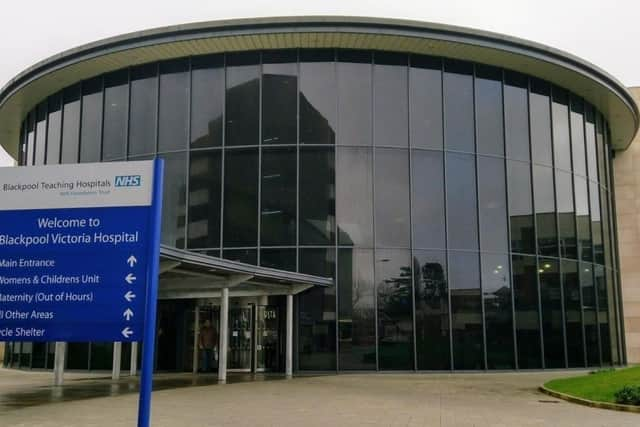Waiting time targets missed for Blackpool cancer patients
and live on Freeview channel 276
In October only three quarters of people (75.4 per cent) began treatment within 62 days of an urgent referral by their GP for suspected cancer, compared to the target of 95 per cent.
This had deteriorated from a figure of 89 per cent in August, while 32 patients have been waiting more than 104 days to be seen.
Advertisement
Hide AdAdvertisement
Hide AdA report by the Blackpool Teaching Hospitals NHS Foundation Trust said all patients who breached the waiting targets were “closely monitored”.


The breast cancer screening programme had restarted following previous lockdown restrictions and was maintaining a 97 per cent referral target.
Across all areas of treatment 1,125 patients are now waiting longer than a year which breaches all targets.
Waiting times have increased because many routine procedures and clinics have had to be suspended as staff tackle the Covid 19 pandemic.
Advertisement
Hide AdAdvertisement
Hide AdTrust chief executive Kevin McGee said planning for a post-Covid future was vital in order to restore routine treatments and reduce waiting times.
He told a meeting of the hospital board held online: “What we have to recognise is that to get back on top of this backlog that has built up over the last year, it’s not weeks, it’s not even months, it’s two or three years to get on top of this.
“I think it will be a national programme so we will absolutely buy into that and we have started to plan already for that restoration.”
One positive sign is improvement in staff recruitment since the beginning of the pandemic, with 870 new starters between April and November last year.
Advertisement
Hide AdAdvertisement
Hide AdThe Trust now has 7,328 staff in post compared to 6,954 staff this time last year, an increase of 374.
Figures from the report also show staff sickness rates at just over six per cent with the top reasons being related to anxiety and stress.
* Thanks for reading. If you value what we do and are able to support us, a digital subscription is just £1 for your first month. Try us today by clicking here